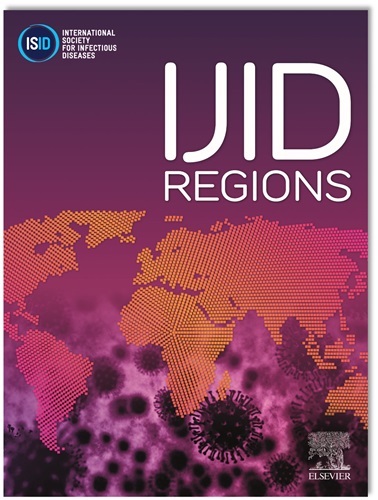Establishment of a wastewater-based surveillance network to support infectious disease surveillance in South Africa
IF 4.8
2区 医学
Q1 INFECTIOUS DISEASES
引用次数: 0
Abstract
Introduction
Wastewater surveillance for infectious disease has demonstrated its potential to support clinical surveillance of infectious disease through the COVID-19 and Mpox pandemics and the polio environmental surveillance. The National Institute for Communicable Diseases (NICD) provides disease surveillance, specialised diagnostics, outbreak response, public health research and capacity building for communicable diseases. Through grant funding, the NICD developed a national and district wastewater surveillance network to support infectious disease surveillance in South Africa. We describe lessons learned sample collection, laboratory processing and data analysis and reporting as the surveillance network has become established.
Methods
A surveillance network comprising 48 wastewater treatment plant (WWTP) and district sampling sites, with a minimum of once weekly sampling, was set up across 9 provinces in South Africa. Samples are collected according to standard procedures, maintained at 40C and transported to the NICD laboratory, In the laboratory, samples undergo concentration, storage of residual concentrate, RNA extraction, PCR detection and quantification. Positive samples are sequenced. All data are recorded into RedCap. Processing data including turn-around-times, sequencing quality data and results are reported weekly. Clinical case data as (determined by case definitions from national notifiable medical conditions surveillance) from the National Health Laboratory Service (NHLS) and NICD laboratory testing (measles and rubella) are downloaded weekly and epidemiological curves are generated.
Results
To date, 3350 samples have been collected from June 2020 until April 2024, with 25-58 samples processed weekly. Turn-around times for quantification and sequencing were 5-7 days, and 3-4 weeks. Challenges included delays in new site activation due to co-ordination across multiple layers of authority. Dedicated fridges were required in some sites to maintain sample integrity. Failure or delay in submitting samples occurred because of challenges with communication, co-ordination for the supply of sampling consumables to collection sites, and delays with processes for procurement of specialised courier services. In the laboratory, delays were experienced with shipment of filtration apparatus and PCR reagents. In addition, contamination in sequencing laboratories intermittently disrupted sequencing as deep cleaning was conducted. Analysis and reporting challenges were encountered in the introduction of RedCap data management system. The programme has also not been able to identify and attract senior bioinformatics staff.
Discussion
A stable network of sentinel sites with regular sampling, testing and reporting has been established. Challenges have provided learning and development opportunities. Research efforts are now focusing on exploring and interpreting the relationship between the clinical and wastewater based epidemiology of the pathogens, and development of models to support public health decision making.
Conclusion
Wastewater sentinel site surveillance networks, testing and analytic infrastructure are necessary components of pandemic preparedness. We have demonstrated successful creation of this network that will provide ongoing evidence to inform data to policy and practice pathways.
求助全文
约1分钟内获得全文
求助全文
来源期刊
CiteScore
18.90
自引率
2.40%
发文量
1020
审稿时长
30 days
期刊介绍:
International Journal of Infectious Diseases (IJID)
Publisher: International Society for Infectious Diseases
Publication Frequency: Monthly
Type: Peer-reviewed, Open Access
Scope:
Publishes original clinical and laboratory-based research.
Reports clinical trials, reviews, and some case reports.
Focuses on epidemiology, clinical diagnosis, treatment, and control of infectious diseases.
Emphasizes diseases common in under-resourced countries.

 求助内容:
求助内容: 应助结果提醒方式:
应助结果提醒方式:


